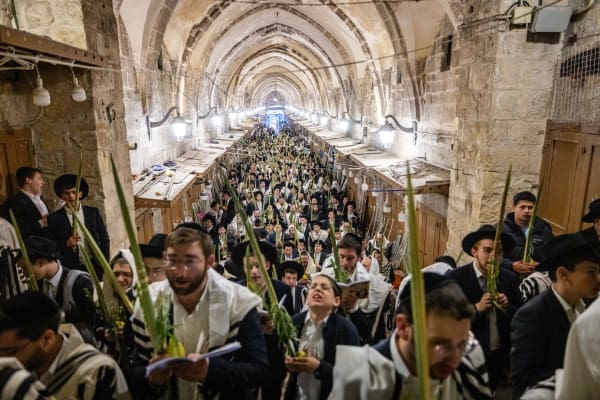Jewish men cover themselves with prayer shawls hold the four plant species – palm leave stalk, citrus, myrtle and willow branches as they take part in the Hoshana Rabbah pray, (on the seventh day of Sukkot) at the entrance to the temple mount in Jerusalem’s Old City on Oct. 23, 2024. Photo by Chaim Goldberg/Flash90
Standing on the tarmac in Tel Aviv as he departed for Riyadh on Wednesday, U.S. State Secretary Antony Blinken urged Israel to seize the “incredible opportunity” to normalize its relations with the Kingdom of Saudi Arabia.
Support authors and subscribe to content
This is premium stuff. Subscribe to read the entire article.
Login if you have purchased
